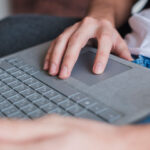Foodies who have an entrepreneurial spark might not be able to open a brick-and-mortar restaurant in the first place. Even with the lack of need for an established storefront, the associated costs of leasing and security deposits are high in the cities, that’s just before you begin branding the location for your food. It’s not for everyone to finance that, but they want to start a food truck business. This guide will help in understanding how to start a food truck business and its advantages as an effective means of realizing your restaurant idea.
How To Start A Food Truck Business
A food truck refers to a portable vending machine with a kitchen that can prepare and serve food. Food trucks have started appearing across both cities and suburbs across the United States and are growing in popularity. A lot of entrepreneurs choose to use food trucks due to the cost of securing an establishment is expensive, whereas food trucks are far less expensive.
What is the Cost of starting a Food Truck Business?
Many factors affect the initial costs for a food truck business. Costs and expenses for one-time events will vary based on location.
One-time costs associated with starting include expenses such as purchasing your food truck and all necessary register or point-of-sale systems and wraps to truck them, web design services, equipment, public relations, advertising costs, and legal, professional or consulting expenses. Although this list is by no means comprehensive, it gives prospective food truck owners an idea of costs in advance.
“While we purchased the food truck itself for just $15,000, we didn’t realize that we’d spent more than double that to have it modified to fit the local fire and health regulations, which vary quite significantly depending on the municipality,” said Rachel Angulo, owner of La Cocinita food truck.
Additionally, there are ongoing expenses, like the cost of payroll and ingredient sourcing, generator power for electric power, equipment rental, processing of credit cards, and course fuel. Every new food truck business is required to get the appropriate permits and licenses. These differ based on location.
The cost of starting a food truck business is dependent on the particular situation. Costs associated with starting your own trucking business typically fall within $28,000 to $114,000. Prices depend upon factors like truck dimensions, the employees operating it, and the duration of operation. and any startup expenses which might arise during launch – expenses like:
- Insurance: $1,000–$4,000/year
- Initial Inventory: $1,000–$2,500
- Payment Processing Fees: $200–$1,000
- Commissary Kitchen Fees: $200–$1,200/month
- Permits and Licenses Charges: $100–$7,500
Also read: How to Sell on Shopify: A Step-by-Step Guide
Funding Options to Start Your Food Truck Business
Starting a food truck can be expensive, but there are several ways to fund your venture:
- Small Business Loans: Available through banks or the SBA with competitive interest rates.
- Personal Savings: A common choice for full control and no debt.
- Crowdfunding: Platforms like Kickstarter let you raise money from future customers.
- Investor Funding: Pitch your concept to angel investors or venture capitalists.
- Grants: Some cities and nonprofits offer grants for small food businesses.
- Equipment Leasing: Lease your truck and kitchen gear to reduce upfront costs.
- Business Credit Cards: Short-term financing for everyday expenses.
Choose the option that best suits your financial situation and long-term goals.
Create a Food Truck Business Plan
Each food truck owner must develop and keep a business plan. It is the first concrete step you take after you decide to establish your own food truck company. The document will help you attract investors, raise funds to get your business up in operation.
A business plan designed for food trucks is similar to a business plan for a new business. Each business plan, particularly one for a food service, should contain the following elements :
- Buy and customize your truck: Purchasing the right food truck is a major step. Choose one that meets both your kitchen needs and budget, then customize it by installing cooking equipment, branding elements, and creating an efficient layout. A well-designed truck enhances workflow and attracts more customers with a professional look.
- Company description: This section should describe the person you are and what distinguishes you as a business. Define the niche you’re providing and the reason why your clients prefer you over your other competitors.
- Market research: Market research helps identify your ideal customers, their food preferences, and where they are located. It also reveals local competition and market demand. Understanding customer demographics and nearby food vendors allows you to craft an exceptional offering and select locations where sales will maximize, setting yourself apart.
- Arise funding: When applying for investments or loans, be clear in outlining what amount is necessary and its intended use. Details should include truck purchase, customization costs, permit fees, and inventory sales and marketing. Doing this helps potential investors or lenders understand your goals for growth as a business and how their funds contribute.
- Sales and marketing: Here, it is crucial to detail your marketing strategies. Consider how you will market your business. Which tools (website, social media or paid advertisements) do you plan to employ for promotion? and any competitive advantages you plan to exploit over rival businesses. This section should also outline your sales plan, including the prices of your menu and minimum sales requirements in order to remain in business, along with seasonal changes that could impact sales.
Also read: How to Start a Seasonal Business: A Short Guide
Challenges in a food truck business
- Navigating Regulatory Hurdles: Navigating health permits, zoning laws and licensing can be complex depending on your city.
- Weather Dependence: for instance, heavy rain, snowfall, or heatwave can decrease customer traffic and consequently footfall.
- Under-Resourced Kitchen: Working within the confines of a restricted space limits menu sizes, storage requirements, and staff capacities.
- Maintenance & Repair: Mechanical or kitchen issues can interfere with operations, leading to lost revenue.
- Locate Competition: Finding high-traffic spots that offer low competition can be both time-consuming and limited in scope.
- Staffing Issues: Finding qualified staff that fits within a small, mobile setup is often challenging.
Summruy
Starting a food truck business offers chefs and food enthusiasts an ideal opportunity to turn their passion for culinary art into a business without incurring the high startup costs.
Undertaking any food truck venture comes with its share of challenges: permits, space limitations, and stiff competition to consider. But with creativity, strong planning, and enthusiasm, a food truck business can become both a rewarding and a profitable venture.















Leave a comment